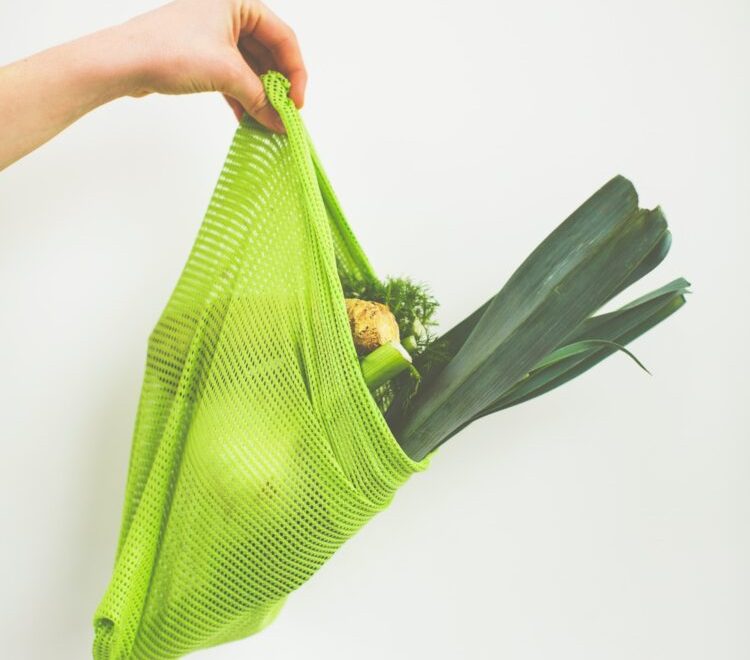How to develop a more sustainable food shop

An area of life where we lead less sustainable lives is food shopping. And it’s hard. There is plastic everywhere and we often drive to large supermarkets. You then have the supply chain process from start to finish of each product and deliveries. Ideally, I would say buy organic from local stores, use zero waste shops, grow your own, and eat seasonal produce. In reality though, these are not options for many. Due to finance, location, and outdoor space availability, it’s not possible for everyone. Going vegan has a positive impact, and it’s incredible to see more people leading plant-based lifestyles. If you’re like me however and have a digestive disorder, then dietary requirements might not allow it.. Despite these issues, there are ways to include greener practices in your regular trip to the supermarket. Here are 6 easy tips to start making your food shop more sustainable.
Loose fruit and veg
Loose fruit and veg is appearing more in supermarkets, especially bulkier items such as carrots, potatoes, apples, and oranges. Rather than using the plastic bags that shops provide to put loose fruit and veg in, bring your own bags.
Swap plastic packaging for fully recyclable packaging where possible
When you are about to pick up an item off the shelves, take a moment to think, is there a version of this with less packaging, or easier to recycle packaging (Pringles are a nightmare, let’s hope the new recyclable tubes succeed). An example of this would washing powder. Instead of buying the plastic containers of Ariel pods, which also used plastic in the actual pod, opt for the washing powder in cardboard boxes which are easy to recycle.
Reusable shopping bags
I think this is something people are getting better at, due to the plastic bag charges, but reusable shopping bags are one of the easiest sustainable switches to make in your life. When you go out, make a point of checking if you have bags with you. If it’s something you tend to forget, try sticking a post-it note by the front door or writing it at the top of your shopping list to remind you. One of the simplest ways to create a more sustainable food shop.
Plan ahead with a shopping list and meal plan
Meal planning and making a comprehensive shopping list is a great way to reduce food and packaging waste. By planning out what you are eating for the week ahead, you won’t be buying anything unnecessary, saving you money and wasting less in the process!
Do one big weekly shop instead of several small trips
Something that lockdown highlighted was a change in food shopping habits. Beforehand, it was tempting to pop to the shops whenever you felt like it, or you might go back to the shops just to get a couple of items or when you had a particular craving for something. Due to safety concerns, the traditional weekly shop is preferable, and better for the environment. It’s important not to forget the travelling aspect of shopping as well as the actual goods. Just shopping once a week reduces the amount of car journeys, and therefore carbon emissions.
Batch cook
Another way to reduce food waste and reduce shopping trips is batch cooking. Buying and cooking in bulk means you can have your meals ready in the fridge or freezer for during the week, and save yourself time and hassle, as well as being more environmentally friendly.
What are your current shopping habits like? Do you think there is an area you could do with improving? Leave your thoughts below in the comments.
Megan x





